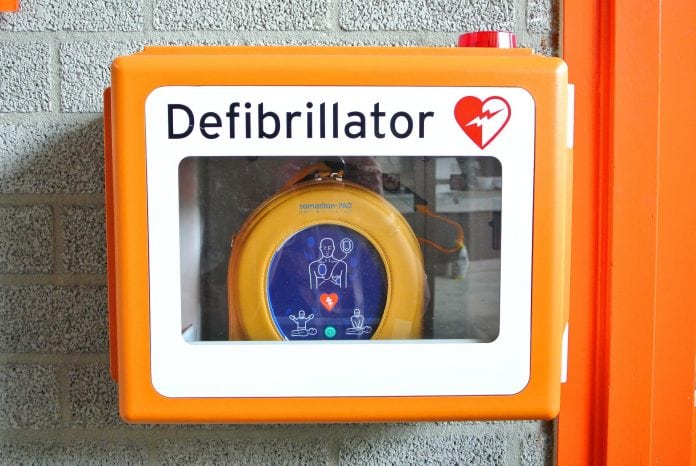
The NHS, British Heart Foundation (BHF) and Microsoft have joined forces to help save lives in out-of-hospital cardiac arrests.
The groundbreaking partnership has the ambitious aim of mapping the UK’s defibrillators in the hopes of ensuring they are readily available for all out-of-hospital cardiac arrests.
Why aren’t defibrillators being used more?
According to recent figures, public access defibrillators are currently used in less than 3% of out-of-hospital cardiac arrests.
Tens of thousands of defibrillators can already be found across the country in workplaces, train stations, leisure centres and public places. But their locations are often unknown to bystanders and ambulance services.
999 call handlers are therefore unable to direct bystanders to their nearest defibrillator when someone suffers a cardiac arrest.
How is the new partnership responding?
Over the next year, the BHF, NHS England, NHS Scotland and Microsoft solutions provider New Signature will combine their expertise in healthcare and technology to develop a comprehensive network of defibrillators across the UK for use by ambulance services.
It will be piloted by the West Midlands and Scottish ambulance services, before being rolled out up and down the country.
The partnership comes as part of a co-ordinated strategy between the BHF, NHS and other leading health organisations to improve the UK’s poor cardiac arrest survival rates by increasing the application of CPR and defibrillation, and improving post-resuscitation care.
Why is defibrillation so important?
More than 30,000 out-of-hospital cardiac arrests occur in the UK ever year, but fewer than one in ten people survive them. Survival rates are up to three times higher in countries where the public are better equipped to recognise and deal with cardiac arrests.
According to BHF chief executive Simon Gillespie: “Every minute without CPR or defibrillation reduces a person’s chance of surviving a cardiac arrest by around 10%.”
He added: “Thousands more lives could be saved if the public were equipped with vital CPR skills and had access to a defibrillator in the majority of cases.”
What happens next?
Upon the launch of the network in spring 2019, defibrillator owners, or ‘guardians’, will be invited to register their defibrillator online through their local ambulance service.
Once live, the detailed location information contained in the network will allow ambulance services to direct cardiac arrest bystanders to a nearby defibrillator. It will also enable guardians to support each other in the maintenance of these life-saving devices.
Certain ambulance services are already able to accept direct registrations. To find out more, visit the AACE website.

























